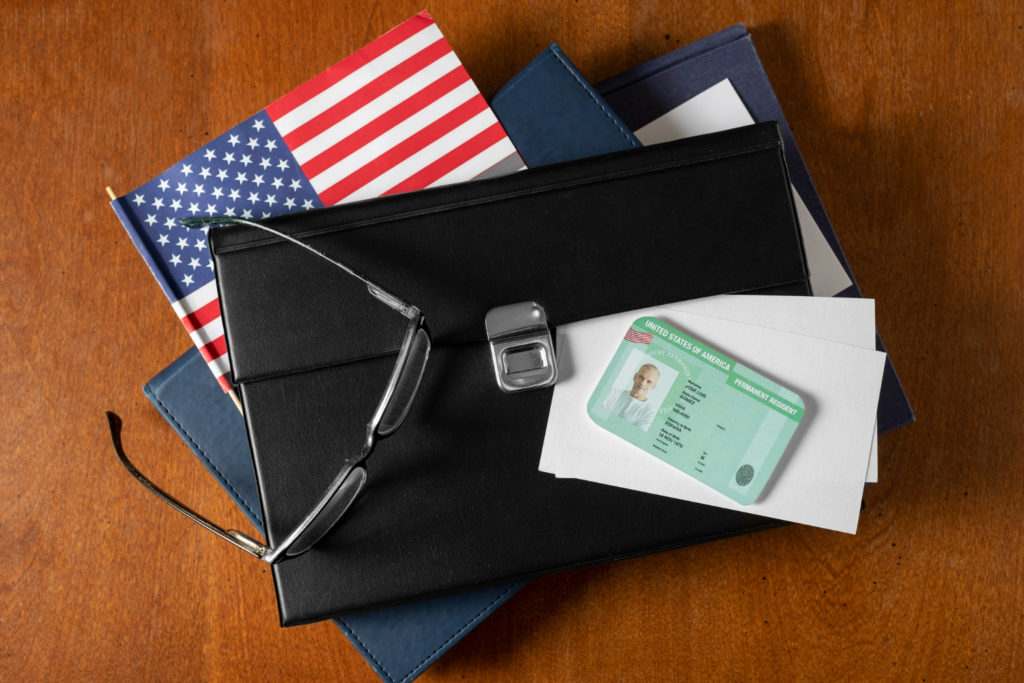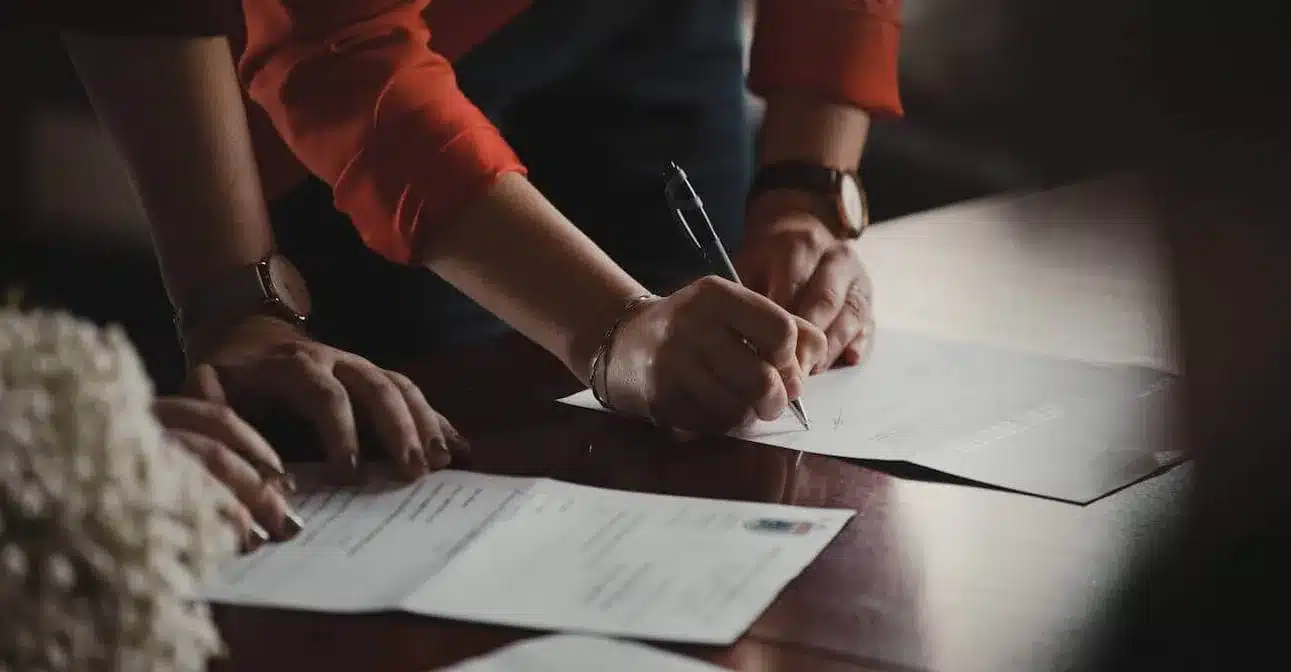
Notarizing Driver’s Licenses and ID in the U.S.
When you need to prove your identity for legal, financial, or travel purposes, simply showing your driver’s license or state ID may not be enough. Many organizations — both in the U.S. and abroad — require a notarized copy of your ID. This process ensures that a licensed notary public has verified the copy against the original and confirmed it is an accurate representation.
At One Source Process, we help individuals and businesses across the country notarize their identification quickly, correctly, and in compliance with all applicable state laws. Below, our experts explain what a notarized ID is, when you might need one, and how to get it.
What Is a Notarized Copy of a Driver’s License or ID?
A notarized copy of a driver’s license or ID is a photocopy that a notary public has certified as a true and accurate copy of the original. This certification is often done by attaching a notarial certificate to the copy, signed and stamped by the notary.
Definition and Purpose
The main goal of notarizing a copy is to prevent fraud. By comparing the photocopy to the original ID, the notary confirms it is legitimate and unaltered. This is especially important when the copy is used outside the state where it was issued or sent to an institution that cannot inspect the original in person.
Difference Between a Notarized Copy and a Certified Copy
While the terms are often used interchangeably, some states define them differently. In certain jurisdictions, only specific government agencies can provide a “certified copy” of a driver’s license, while notaries can only attest to its authenticity. Always check your state’s official notary guidelines (for example, Texas Secretary of State — Notary Public).
When You Might Need a Notarized Driver’s License or ID
You may be required to provide a notarized copy of your driver’s license or ID in many situations, such as:
- Applying for a professional license or certification
- Completing real estate transactions
- Submitting paperwork for a court case
- Conducting international business or financial transactions
- Applying for foreign residency or a visa
International Transactions and Travel Requirements
If your notarized ID will be sent overseas, the receiving country may require additional authentication such as an apostille or full embassy legalization. For non-Hague Convention countries, this means completing legalization services after notarization.
Expert Insight: “Notarization is often just the first step. If your document is going abroad, confirm whether the destination country requires further authentication.”
How to Get a Notarized Copy of Your Driver’s License or ID
Step 1 — Make a Clear Photocopy of Your ID
Before you meet with a notary, make a full-size, high-resolution photocopy of your driver’s license or state-issued ID. The copy must show all details clearly, including your photo, signature, expiration date, and any security features such as holograms or barcodes. Avoid resizing or cropping the image — most agencies prefer a true-to-size reproduction. If you don’t have access to a high-quality copier, many print shops, office supply stores, and shipping centers offer this service for a small fee. Remember that the clearer your copy is, the smoother your notarization process will be.
Step 2 — Find a Licensed Notary Public
You can locate a notary at banks, credit unions, UPS or FedEx Office locations, law firms, or through independent mobile notary services. In some states, you can also use an online notary, but you’ll need to verify whether your state allows remote notarization for identification documents. When booking your appointment, confirm that the notary is authorized to certify copies of IDs — some states restrict this type of notarization. You can check your state’s rules on the official notary division website.
Step 3 — Present the Original and the Copy for Verification
When you meet the notary, bring both the original driver’s license or ID and your photocopy. The notary will examine the original to verify its authenticity, comparing all visible details with your copy. If there are any discrepancies — such as damage, fading, or missing information — the notary may request a new copy or refuse to proceed until the issue is resolved. In most states, the notary must witness you affirming that the copy is a true and accurate reproduction of your ID.
Step 4 — Receive the Notarized Copy
Once verification is complete, the notary will prepare a notarial certificate, sign it, and place their official seal or stamp directly on the copy or on an attached page. This certificate confirms that the copy is a true and correct reproduction of the original ID. Keep your notarized copy in a safe place, especially if it will be mailed or presented to an agency. If the notarized copy is for international use, you may need to take an additional step — obtaining an apostille or completing legalization services depending on the country’s requirements.
Where to Get Your Driver’s License or ID Notarized
You have several convenient options for notarization:
In-Person Locations
- Banks and credit unions
- Law and accounting offices
- UPS or FedEx Office locations with notary services
- Local notary publics listed with your county clerk
Remote Options
- Mobile notary services that come to you
- Online notarization (available in certain states — see National Notary Association State Resources)
State-Specific Rules and Limitations
Some states limit what notaries can do when it comes to identification documents:
- California — Notaries generally cannot certify copies of driver’s licenses or IDs.
- Texas — Permits both in-person and online notarization of ID copies.
- New York — Allows it, but specific wording may be required on the notarial certificate.
Always check your state’s notary laws before proceeding to avoid delays or rejections.

Cost and Processing Time
Typical Notary Fees in the U.S.
Notary fees for certifying ID copies usually range from $5 to $15 per signature. Mobile and online notarization may cost more due to travel or technology fees.
Factors That May Increase the Cost
- After-hours or weekend service
- Same-day mobile notary visits
- Additional copies requested during the same appointment
Frequently Asked Questions
Q1: Can I Notarize My Own ID?
No. A notarized document must be certified by a state-commissioned notary public.
Q2: Is a Notarized ID Valid in Another State?
Yes, notarization is generally recognized across all U.S. states, but always check the receiving party’s requirements.
Q3: Do I Need an Apostille for a Notarized ID Going Abroad?
If the destination country is part of the Hague Apostille Convention, yes. If not, you will need embassy legalization instead.
Q4: Does the DMV Offer Notary Services?
In most states, no. Some DMV offices may have notaries, but it’s rare.
Q5: Can I Email or Scan a Notarized ID?
Yes, but always confirm the receiving party will accept a scanned copy instead of the original notarized document.
Final Tips from One Source Process
If you need your driver’s license or ID notarized quickly and correctly, preparation is key. Bring your original ID, a clear photocopy, and any instructions from the requesting agency. If your notarized ID will be used internationally, we can assist with apostilles and embassy legalizations so your documents meet all requirements. Contact us today to get started with your notarization.




